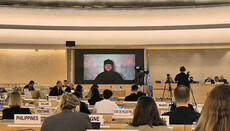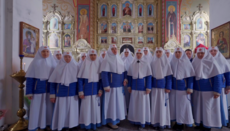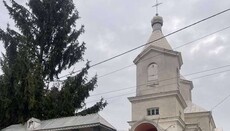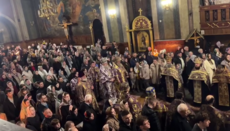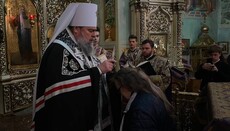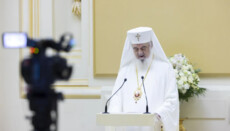Yelensky: UN resorts to manipulation claiming that anti-church law bans UOC
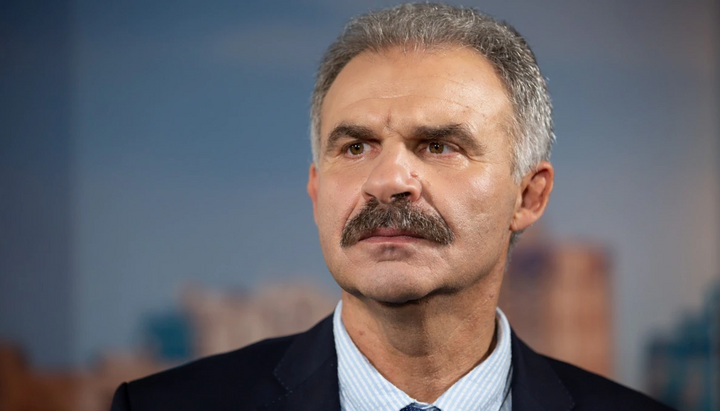
“The law does not ban the UOC, but it is about banning... nor are the clergy of this Church persecuted, but if they are persecuted…” – the DESS head tried to defend himself following the UN’s conclusions.
Viktor Yelensky, head of the State Service of Ukraine for Ethnic Policy and Freedom of Conscience (DESS), commented on the latest report from the UN High Commissioner to Hromadske Radio. He claimed that international human rights advocates had taken a superficial approach to drafting the report on the religious situation in Ukraine and accused them of manipulation.
The government official once again tried to justify the anti-Church law №3894 adopted by the Verkhovna Rada, which aims to ban the activities of the Ukrainian Orthodox Church (UOC) and has been criticized by the UN.
“Manipulations begin, the sleight of hand starts from the very first minutes,” he said about the UN report.
According to Yelensky, the law does not actually ban any religious organization.
“The law does not mention banning the UOC or any other religious organization. It concerns banning the Russian Orthodox Church, which, according to a PACE resolution, is an extension of Putin’s criminal regime and a full-fledged participant in the war against Ukraine,” he explained.
However, he then added that it does impose restrictions: “Thus, the Russian Orthodox Church is banned in Ukraine, and religious organizations affiliated with it are given every opportunity to disaffiliate.”
Yelensky stated that the Ukrainian state does not impose calendar reforms on anyone or force parishes to join any other religious organization.
Furthermore, the DESS head claimed during the radio program that no UOC churches have been closed in Ukraine and that no clergy of this Church have been persecuted.
“And if somewhere the clergy of this Church are being persecuted…” he began to explain but was interrupted by the host.
At the end of the discussion, Yelensky reiterated, “The law pursues a legitimate aim, is necessary in a democratic society, and passes all the required democratic tests.” He also informed listeners that the Ministry of Foreign Affairs had already stated that the UN’s conclusions regarding the anti-Church law “do not correspond to reality”.




